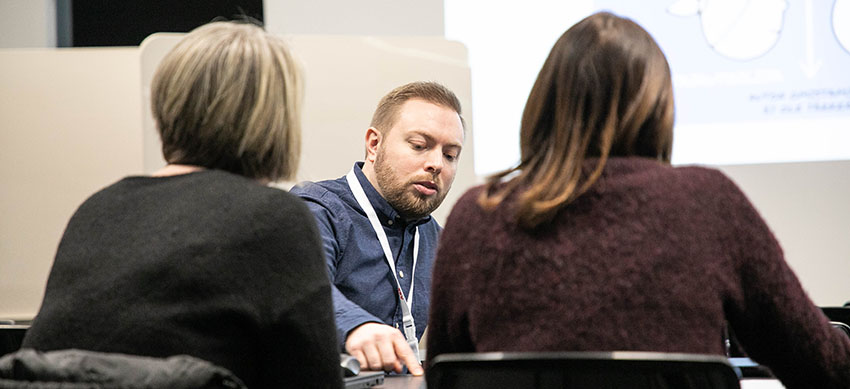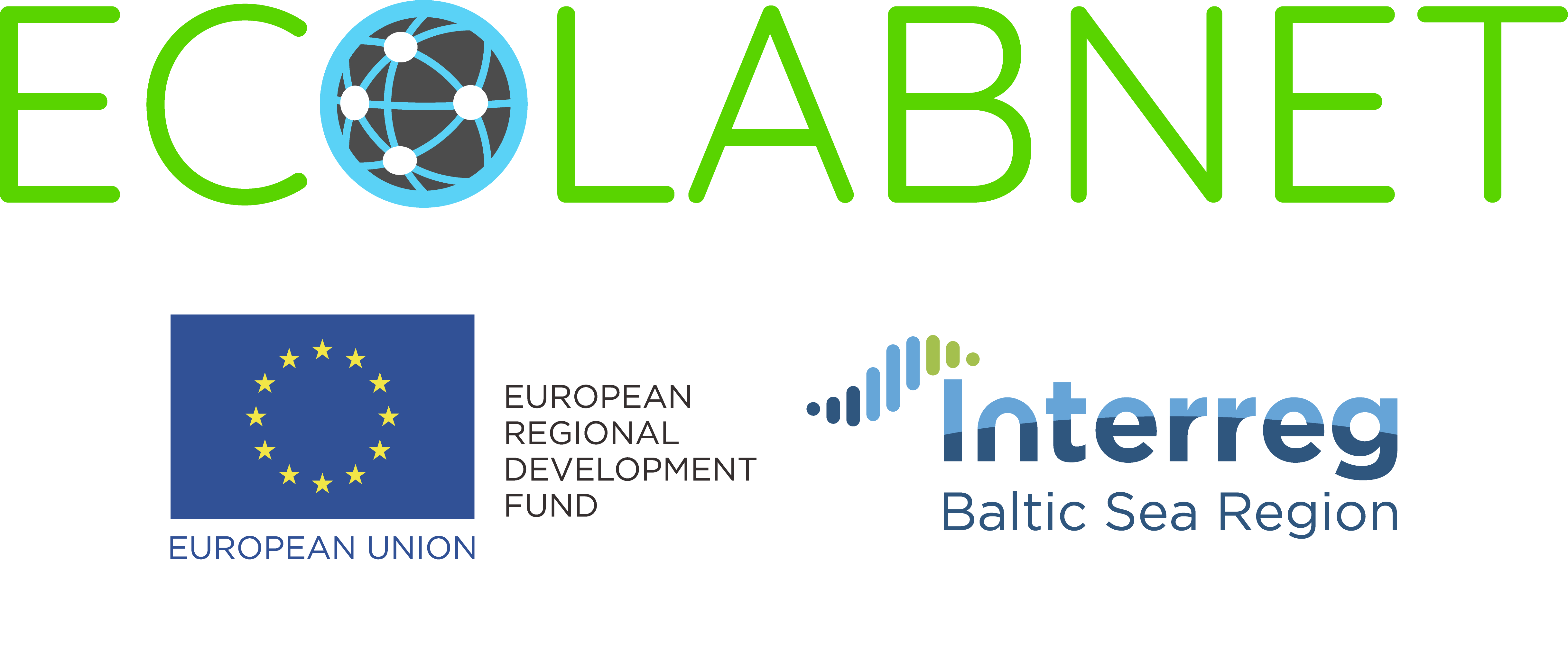
Writer: Miia Lammi, Vaasa University of Applied Sciences
ECOLABNET is a network of research, development and innovation organisations, which supports companies in eco-innovation in the Baltic Sea Region. ECOLABNET acts as a transmitter of expertise and facilities to support eco-innovation in industrial small and medium-sized companies. It creates easy access to information and experts in order to support insights and collaboration in eco-innovation. How can you use ECOLABNET and the services of its members? Here are some examples.
Find relevant information about eco-innovation
Eco-innovation covers development of ecological solutions new to the company or to the markets. There are many answers to the question of how the company should or could provide be more ecological solutions. Therefore, the development often starts from finding information and drivers for development. The customers might ask or even demand more sustainable solutions and the company needs to evaluate what is the right time and approach for investing in development. Legislation is a strong driver for development. When company anticipates changes in legislation, there is more time for reacting to the changes.
Information about ecological solutions are scattered around internet. Ecolabnet provides easy access to the knowledge and contacts in order to create insights and collaboration. Digital collaboration tool (DCT) contains expertise, services, product solutions and research findings and contact information. The companies can contact the suitable experts or organisations directly or use support organisations to build development projects.
Network with experts and support organisations
Events are good ways to get insights and contacts for ecological innovation. ECOLABNET organises events to share expertise related to bio-based materials, 3D printing, environmental assessment, product and service design, sustainable branding, circular business and commercialising eco-innovations. The events share good practices, new innovations and research findings and create new contacts. International events are places to to find the best collaboration partners in the field.
Networking takes place on the digital collaboration tool, DCT also. DCT helps different companies to find suitable services, experts and laboratories to their needs. DCT presents organisations committed to serve smaller companies and services are described in understandable way. The negotiations between potential collaboration partners and the development projects take place outside the tool in order to avoid security issues. Contracts are made between the collaboration partners in order to take care of confidentiality and intellectual property rights. The services are evaluated on the DCT platform so that it is easy to find high quality service provider.
Manage eco-innovations
Innovation can start from a piece of information, a discussion with an expert or a customer. When a company wants to manage innovation activities in a professional way, the search for opportunities need to be systemised. It means participating in events, reading about new solutions and working together with experts and customers on a regular basis. The ideas are nurtured in discussion with own staff and partners and evaluated against their market potential and company strategy. The ideas can be visualised early on in order to evaluate them objectively. Pilots and test support in finding the feasible and desirable solution.
New innovation may require new know-how, which can be created in publicly or internally funded projects or though continuous collaboration with research and educational institutes. Public funding shares risks of investing in new innovations. Innovation projects need to have a good process and flexibility to fail safely and learn from experiments. The results can be used to develop a business solution, to test the markets, or to adapt markets to the innovation. The communication needs to be planned accordingly in order to get the maximum impact for investing in innovation.
3D print using bio-based materials
3D printing is great way to prototype new ideas and also to produce small series or customised products. Bio-based material can be used in 3D printing. Finding suitable technical settings and suitable material needs testing and development. ECOLABNET has many experts and laboratories for different 3D printing technologies. The experts are connected to the bio-based material experts and together they can develop a suitable system for producing bio-based products with 3D printing technologies.
Support organisations can help to create a development project and find funding for the development. Suitable experts for the development team can be found from digital collaboration tool. The aims, scope and activities of the development can to be discussed with experts already when building the project. Then it is possible to plan the project in realistic way and involve the needed experts to succeed in the project.
The experts carry out the development activities defined together with the development team. They carry out the texts in the laboratory and assist in production setup. The inform the development team about the progress and delivers the results. The reports are used in the next steps of the project as well in reporting to the financer.
Commercialise eco-innovations
There are many ways to commercialise an innovation and it needs different kinds of expertise about the markets both nationally and internationally. It is good to carry out market research in the beginning of an innovation process in order to identify customer needs and understand the business environment, competition and trends. Another approach is to collect market information for the developed innovation.
The researcher or the company analyses the market information and compares it to the resources of the company. A target market is identified and selected. The company uses information in order to develop a solution or to adapt it to the markets. This can include the development of the technical, design or usability issues. Next step is to create a strategy to marketing or entering to the market. The strategy is complemented with branding and production of marketing material. Pilot cases and experiments with potential customers help in selling an innovation and collecting feedback from the markets.
External experts in development
When company collaborates with external experts, researchers and consultants, the development process or tasks need to be shared and discussed. The time is still used well, since external experts bring high level of competences and solutions to development. Experts can facilitate the process or provide solutions and information to the process. They can study and test solutions and bring new insights to the solution development. In collaboration with experts and support organisations learning of new competences takes place during the development, and a more innovative solution can be developed.
